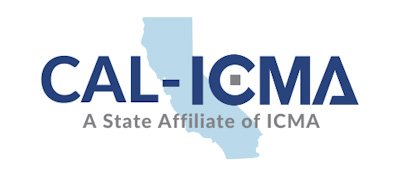Strategic Advising in Times of Uncertainty
Sponsored Article by Mary Egan, CEO, MRG
How to use experts to augment & support your team
In times of rapid change, constrained resources, and rising public expectations, local government leaders increasingly turn to trusted advisors for support for navigating complexity and uncertainty. At Municipal Resource Group (MRG), we are experiencing an influx of requests for assessments as staffs are again left to do more with less. Whether MRG is the right organization for your assessment or not, we believe our approach to organizational assessments reflects a set of core principles designed to deliver not only thoughtful analysis, but also practical, implementable solutions that build internal capacity: an approach that can be leveraged as guiding principles for any consultancy group you work with.
1. Prioritize Roadmaps over Lengthy Reports
Our deliverables often include briefing decks, high-level summary reports, and roadmap documents tailored for different audience, including executives, department leaders, and elected officials. These tools help leaders quickly grasp key insights, see priorities, and chart a course of action. Asking consultants to focus up on your actionable tasks makes implementation much simpler for your organization and avoids the need to pay someone thousands of dollars for a 200+ page report that you skim once and becomes a dusty desk ornament.
2. Co-Creation & Leadership Building from Start to Finish
You can envision your consultant relationship as an active partnership of co-creation. This includes coaching and mentoring your managers—especially emerging leaders and newly appointed executives – throughout the engagement. By involving your team in shaping the assessment and exposing them to analytical tools and decision-making frameworks, we equip them to lead similar efforts in the future. It’s capacity building, not just consulting and could potentially save you from having to rely on consultants again and again for things your team can be taught. The added bonus of this coaching is rapid growth of your team’s confidence, leadership and executive presence.
3. Clarifying Scope with Intentional Front-End Engagement
Successful assessments begin with clarity. We invest time in early intake conversations with stakeholders to define the true problem, set realistic expectations, and ensure the assessment addresses the most pressing organizational challenges. This helps avoid scope creep and ensures the final deliverables are aligned with the organization’s needs. Being clear about what you expect the end of the engagement to look like deliverable-wise can clear up confusion for any consultant team.
4. Land the Communications Plane
Organizational assessments often generate anxiety or confusion among staff. We work with leaders to establish clear communication protocols to keep staff informed and engaged throughout the process. Our team drafts emails and messages to help management with this critical work. By aligning messaging internally and externally, we help agencies increase transparency and trust—whether communicating with employees, unions, elected officials, or the community – and get that proverbial to a safe landing.
5. Implementation During the Assessment Process
We don’t wait until the final report to start driving change. When quick wins or urgent needs emerge during our review, we bring those recommendations forward immediately. This agile approach supports real-time problem-solving and reinforces momentum toward improvement, keeps your team engaged and brings a continuous-improvement mindset to every engagement.
We hope these guiding principles for how to engage more effectively with consultants in times of uncertainty were helpful and if MRG can be of service to your organization, we encourage you to reach out.
Mary Egan, CEO, MRG
